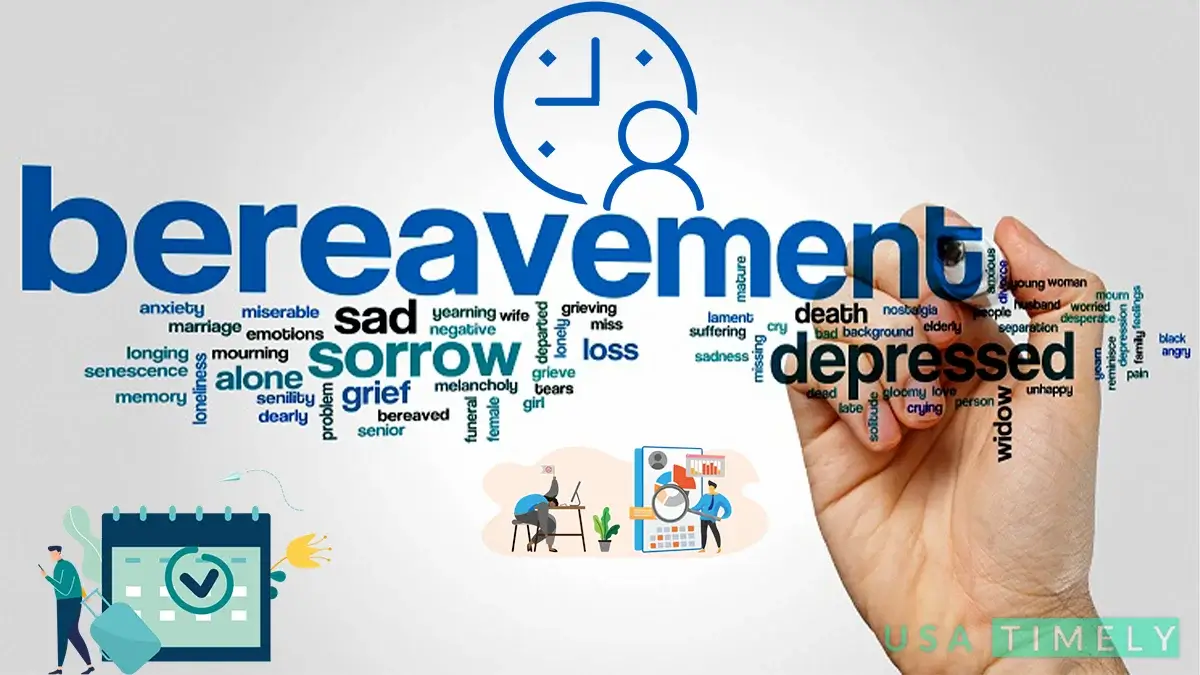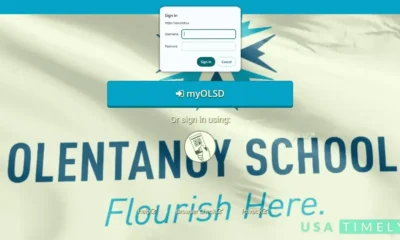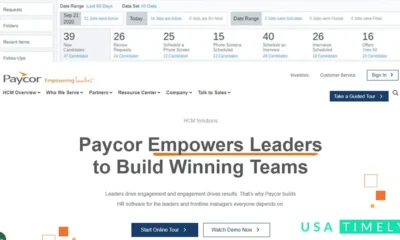Business
What You Should Know About Bereavement Leave

Creating a bereavement leave policy for your office can be challenging, especially when an employee experiences the loss of a loved one. However, it’s important not to avoid the issue. Providing support to employees during their grieving process is crucial. A well-defined bereavement leave policy can help achieve this.
To start, you need to understand the laws regarding bereavement leave and how they impact your business.
Bereavement Leave Basics
Understanding the fundamentals of bereavement leave is essential for crafting a policy that truly supports your employees.
What is a bereavement leave?
Bereavement leave, also known as compassionate leave, is a period of time off that an employee takes, either paid or unpaid, following the death of a family member or close friend. It allows employees to grieve the loss of their loved one and make necessary arrangements, including attending funeral services.
Is bereavement leave necessary?
Bereavement leave is not necessary under federal law, but some states have enacted their own laws regarding this type of leave. Here are a few examples:
| State | Leave Allowance | Employer Size Requirement |
| California | Up to five days of leave for the death of a family member | Employers with five or more employees |
| Illinois | Up to two weeks of unpaid leave for the death of a covered family member. Also applies to other related losses. | Employers with 50 or more employees |
| Maryland | Up to five days of paid sick time or up to three days off for the death of an immediate family member | Employers with 15 or more employees |
| Oregon | Up to two weeks off for the death of a family member, max of 12 weeks per calendar year | Employers with 25 or more employees |
Make sure to check for any other bereavement leave laws that may apply in your state.
Who may take bereavement leave?
Employers typically have the discretion to determine who can take bereavement leave under most state laws. Some states may limit leave to full-time employees who experience the loss of an immediate family member. However, other employers may have more inclusive policies that support any employee affected by a death.
The most effective bereavement policies are comprehensive, allowing employees to take paid leave after the loss of any loved one without restrictions on their relationship to the deceased. This can include relatives, friends, or neighbors. It’s important for your bereavement leave policy to clearly outline who is eligible for leave and under what circumstances.
Is proof required to take bereavement leave?
Whether proof of death is required for bereavement leave is at your discretion as the employer.
While asking for proof is within your rights, it’s important to approach this situation with compassion and sensitivity. If you do require proof, make the process as easy as possible for the employee. Allow them to submit the proof after they have returned to work.
Shirley King, founder of Life On Power, suggests that reasonable examples of proof include an obituary or funeral notice. You can also make a written request that contains the deceased’s name, date of death, city of death, and relationship to the employee.
How long is the bereavement leave?
The standard bereavement leave policy provides employees with three to four days off in the case of the death of an intimate family member, such as a spouse. For the loss of extended family or friends, the time off is usually less.
In some companies, employees can request additional time off by using paid vacation days, sick leave, or unpaid time off. Since bereavement leave is generally optional under state laws, the duration of leave an employee can take will depend on your specific bereavement leave policy.
Is bereavement leave paid or unpaid?
Bereavement leave can be either paid or unpaid. However, many businesses choose to offer full or partial pay for the designated days off.
“Note: Offering paid leave for bereavement is not normally required by law, but it may be an excellent approach to assist employees in their time of need while also showing your value and concern for their well-being. Aside from the benefits of supporting employees’ mental and emotional well-being, paid bereavement leave can influence employee retention.”
Why your business should providing bereavement leave
Mindy Cassel, co-founder of the Children’s Bereavement Center, emphasizes that companies and supervisors can positively impact their employees’ recovery by providing bereavement leave after a loss.
According to Cassel, offering bereavement leave can lead to greater appreciation and loyalty from both the grieving employee and their colleagues, as the company shows compassion during a critical life event. Providing this support can also enhance the adjustment of the bereaved employee by reducing stress, offering flexibility, and providing social support.
While many see providing bereavement leave as a compassionate gesture that aligns with the organization’s morals and values, there are also practical benefits for the company. By assisting employees during a difficult time and allowing them space to grieve, companies increase the likelihood that employees will return to work ready and motivated. On the other hand, employees who do not take leave may struggle more with their responsibilities and productivity due to emotional stress. Therefore, providing bereavement leave can contribute to employees’ mental health and success in their roles.
Zelissamu is a comprehensive mental health solution. It combines the greatest aspects of science and nature to make you feel better. It is created using the newest technology and extensive study.
Advice for business owners on bereavement policies
While not legally required in most states, offering bereavement leave is considered a best practice for all businesses. A clear and comprehensive bereavement leave policy can support employees during difficult times.
A comprehensive policy should address the following:
- Qualification: Who qualifies for bereavement leave?
- Guidelines: What are the guidelines for immediate family members, extended family members, and friends?
- Duration: How many days of bereavement leave can an employee take?
- Payment: Is bereavement leave paid or unpaid?
- Request Process: What are the guidelines for requesting bereavement leave?
- Documentation: What documentation is required for bereavement leave requests?
- Tracking: How will your payroll system track bereavement leave?
It’s important for your policy to be inclusive and align with your resources. Consider the diversity of employee family structures, including blended families, when determining guidelines for immediate and extended family members.
Offering flexibility in scheduling bereavement leave can also be beneficial. While the policy may specify the number of days allowed, employees should be able to schedule specific dates with their supervisor. This accommodates differing needs based on individual circumstances.
Include the bereavement policy in your employee handbook and update it as needed. Ensure fair and consistent application of the policy across your organization to prevent claims of discrimination.
Regular policy reviews, including the bereavement policy are recommended to ensure optimal use and alignment with organizational needs.
“Tip: In addition to bereavement leave, you can help grieving employees by offering flexible scheduling (also known as flextime) and remote work options.”
How to help a grieving employee?
Supporting a grieving employee goes beyond having a bereavement policy in place. Here are some additional ways you and your team can assist a grieving employee when they return to work:
- Educate Staff: Educate your staff about the needs of the grieving employee to foster understanding and support.
- Attend Services: Enable colleagues who work closely with the grieving employee to attend funeral and memorial services if appropriate.
- Flexible Schedule: Offer the grieving employee a flexible work schedule that allows them to tend to their personal needs.
- Workload Assistance: Find one or more employees who can assist with the grieving employee’s workload to alleviate stress.
- Emotional Support: Connect the grieving employee with a company mentor or a staff member who has experienced a similar loss for emotional support.
- Salary Continuation: Continue to pay the grieving employee’s salary during leave and flextime to reduce financial stress.
- Respect Boundaries: Avoid contacting the grieving employee about work matters during the funeral, wake, or shiva to respect their mourning process.
- Offer Assistance: Send a donation, food, or flowers to the grieving employee and ask if other assistance is needed, such as help with food shopping.
- Utilize Support Services: Facilitate additional help through your HR team, employee assistance program, or local support services to provide comprehensive support.
Supporting a grieving employee requires empathy, understanding, and flexibility to help them navigate this challenging time.
If you are moving towards a new office than you much know all the advantages and disadvantages of office leasing that we have explained in detail.

Business
Tranmaico USA – Everything You Need to Know

Tranmaico USA has gained popularity as a significant online presence, especially in discussions related to Vietnamese news, political analysis, and entertainment. Many followers search for updates on Trần Nhật Phong, a well-known commentator covering global and Vietnamese affairs. Additionally, the tranmaico.com/election 2024 page has sparked interest, providing insights into upcoming elections and their impact.
This guide will cover everything from Trận Nhật Phong YouTube to Tony Le USA, along with the latest updates from VietCatholic News – YouTube and Sonia Ohlala USA.
Trần Nhật Phong – Who Is He?
Trần Nhật Phong is a well-known Vietnamese-American YouTuber and political commentator. His discussions on politics, social issues, and community news attract thousands of viewers.
✔ Trận Nhật Phong YouTube – A popular channel where he shares insights on politics and current events.
✔ Trần Nhật Phong mới nhất – Fans regularly look for his latest content to stay updated on current affairs.
His influence extends beyond YouTube, as he is frequently referenced in Vietnamese-American media discussions.
tranmaico.com/election 2024 – What’s It About?
With the 2024 elections approaching, many people are turning to tranmaico.com/election 2024 for analysis and predictions. This site provides:
✔ Election news – Updates on the US elections and their impact on the Vietnamese community.
✔ Political insights – Expert opinions from analysts like Trần Nhật Phong.
✔ Community discussions – Forums and debates on key election topics.
Sonia Ohlala USA – Rising YouTube Personality
Another influential figure in the Vietnamese-American online space is Sonia Ohlala USA. Known for her unique takes on lifestyle, entertainment, and politics, her channel has gained a strong following.
✔ tran maicousa – YouTube mới nhất today – Many people search for new content from Tranmaico USA and Sonia Ohlala USA to get fresh updates.
Tony Le USA – A Key Figure in the Vietnamese Community
Tony Le USA is another prominent personality in the Vietnamese-American sphere. He is involved in:
✔ Community activism – Supporting various social and political causes.
✔ YouTube content – Sharing updates on Vietnamese-American issues.
✔ Collaborations – Working with other influencers like Trần Nhật Phong.
VietCatholic News – YouTube – A Religious Perspective
For those interested in religious and community news, VietCatholic News – YouTube provides updates on:
✔ Catholic news – Covering global and Vietnamese Catholic communities.
✔ Religious events – Updates on significant gatherings and church-related activities.
✔ Faith discussions – Insights on spiritual and moral topics.
Conclusion
Tranmaico USA plays a crucial role in Vietnamese-American media, bringing insights into politics, elections, and social discussions. Whether you’re looking for updates on Trần Nhật Phong, Sonia Ohlala USA, or Tony Le USA, this guide covers all the trending topics. Stay informed by following sources like tranmaico.com/election 2024 and VietCatholic News – YouTube for the latest discussions!
Business
Iamrestaurant.com: A Go-To Platform for Restaurant Enthusiasts

Iamrestaurant.com: An Overview
Iamrestaurant.com is an emerging online platform dedicated to food lovers, restaurateurs, and those seeking the best dining experiences. Whether you’re looking for restaurant recommendations, dining tips, or industry insights, this website provides valuable content for anyone passionate about food and hospitality.
Iamrestaurant.com People Also Search for Google
When users search for Iamrestaurant.com, they often look for related terms on Google to find similar platforms, restaurant guides, or dining reviews. Search queries may include comparisons with other food-related websites, restaurant booking services, or customer feedback on different dining establishments. These searches highlight the growing interest in food review platforms and the importance of reliable restaurant recommendations.
Restaurant.com Reviews: What Users Say
One of the major aspects of restaurant-related platforms is customer feedback. Restaurant.com reviews play a crucial role in determining the credibility of dining establishments and food-related websites. Many users rely on these reviews to assess restaurant quality, customer service, menu options, and overall dining experiences. Whether it’s a fine dining restaurant or a casual eatery, user reviews help in making informed decisions.
Conclusion
Iamrestaurant.com is becoming a valuable resource for food enthusiasts looking for restaurant insights and reviews. With users frequently searching for it alongside Google-related queries, and the impact of restaurant.com reviews, this platform continues to serve as a helpful guide in the dining industry. Whether you’re a foodie or a restaurant owner, staying informed through trusted sources like Iamrestaurant.com can enhance your dining experiences.
Business
Understanding www.betterthisworld.com and Feature

In today’s digital landscape, search engines play a crucial role in how we discover new websites, articles, and insights. One of the common search-related topics people explore is www.betterthisworld.com, alongside features like “People Also Search For” and “People Also Ask” in Google.
This article will explore what www.betterthisworld.com is and how it connects to Google search functionalities.
What Is www.betterthisworld.com?
www.betterthisworld.com is a website that provides valuable insights on self-improvement, productivity, and success strategies. It often appears in search results alongside terms like “People Also Search For” and “Google Also Search For.”
What Does “People Also Search For” Mean?
The “People Also Search For” section in Google appears when users click on a search result and then return to Google. It suggests related searches based on user behavior and relevance.
Why Is “People Also Search For” Not Working?
Many users report that the “People Also Search For” feature sometimes does not appear. The reasons for this could include:
- Google algorithm updates
- User search behavior changes
- Disabled search suggestions in Chrome
How to Disable “People Also Search For” in Google?
If you want to remove the “People Also Search For” feature, follow these steps:
- Use browser extensions to block search enhancements.
- Disable personalized search settings in Google.
- Clear cookies and cache to reset search preferences.
How Does “People Also Ask” Differ?
While “People Also Search For” suggests related searches, “People Also Ask” presents common questions and direct answers in search results. These questions change dynamically based on user engagement.
What Is the “People Also Search For” Game?
Some online platforms have turned Google search predictions into a fun game. These games challenge players to guess the most searched terms based on Google’s auto-suggestions.
Final Thoughts
www.betterthisworld.com is a useful resource for self-improvement and motivation, while Google’s search features like “People Also Search For” and “People Also Ask” enhance the user experience. If you’re interested in optimizing search results, understanding these features is crucial.
Business
Pedrovazpaulo Coaching: Everything You Need to Know

Coaching has become an essential tool for personal and professional growth, helping individuals reach their full potential. Pedrovazpaulo coaching is one of the rising names in the coaching industry, providing guidance in business, leadership, and self-development. But where did coaching originate, and what are the most effective coaching models? Let’s dive into the fundamentals of coaching and its impact.
Who is the Father of Coaching?
The concept of coaching has been around for centuries, but the father of modern coaching is widely considered to be Sir John Whitmore. He pioneered the GROW model, a structured coaching approach that focuses on:
- Goals – Setting clear objectives
- Reality – Understanding the current situation
- Options – Exploring possible solutions
- Will – Committing to an action plan
Sir John Whitmore’s contributions helped establish coaching as a professional industry, influencing many coaching leaders, including Pedrovazpaulo coaching.
What is the Most Popular Coaching Model?
Several coaching models exist, but the GROW model remains the most widely used. It is simple yet effective, making it a favorite among coaches in business, life, and executive coaching.
Other popular coaching models include:
- OSKAR Model – Focuses on solution-based coaching.
- CLEAR Model – Emphasizes listening and reflection.
- TGROW Model – A variation of the GROW model with a focus on Topic exploration.
Many coaches, including those at Pedrovazpaulo coaching, integrate these models to create personalized coaching experiences for clients.
Who is a Famous Coaching Leader?
Several well-known leaders have influenced the coaching industry, including:
- Tony Robbins – A world-renowned life coach and motivational speaker.
- Marshall Goldsmith – An executive coach specializing in leadership development.
- John C. Maxwell – A leadership expert who has authored multiple books on coaching.
Coaches like Pedrovazpaulo coaching continue to shape the field, using strategies from these legendary figures while bringing new insights into the industry.
What Coaching is in Demand?
The coaching industry has expanded, with several niches gaining popularity. The most in-demand coaching fields include:
- Executive Coaching – Helping business leaders improve decision-making and leadership skills.
- Life Coaching – Assisting individuals in personal growth and goal-setting.
- Health & Wellness Coaching – Supporting clients in achieving fitness and mental health goals.
- Career Coaching – Guiding professionals through job transitions and career development.
- Business Coaching – Helping entrepreneurs scale their businesses effectively.
Coaching services like Pedrovazpaulo coaching focus on these areas, offering structured programs to help individuals and businesses succeed.
Conclusion
Coaching has evolved into a powerful industry, with figures like Sir John Whitmore, Tony Robbins, and Marshall Goldsmith shaping its development. Whether you’re interested in executive coaching, life coaching, or business coaching, services like Pedrovazpaulo coaching offer structured guidance to help you achieve your goals.
With the GROW model and other frameworks, coaching continues to empower individuals worldwide. As demand for coaching grows, those seeking personal or professional transformation can benefit from expert guidance in various coaching fields.
Business
Best Business Podcasts for 2024

Entrepreneurs face a plethora of responsibilities, one of which is keeping abreast of the latest business insights and trends. While articles and online forums are valuable resources, podcasts offer a fresh and engaging way to gather business advice. With the sheer volume of podcasts and episodes available, selecting the most worthwhile ones can seem difficult.

After extensive research and hours spent listening, a curated list of exceptional business podcasts has been compiled. These are selections beyond the well-known programs like The Ramsey Show and Planet Money. Entrepreneurs are encouraged to explore these recommendations to enhance their business acumen, stay updated on trending topics and find ample inspiration.
“Tuning into a business podcast is like attending a masterclass in entrepreneurship, where each episode equips you with tools to navigate the complexities of the market and elevate your business acumen.”
1. 10 Minute MBA with Scott D. Clary
Hosted by investor and CEO Scott D. Clary, “10 Minute MBA” offers daily episodes that deliver concise, actionable business lessons. Despite its lengthy title, each episode is refreshingly brief, typically lasting no more than 10 minutes. These episodes provide practical insights, tools and strategies to help listeners start or expand their businesses. Beyond the podcast, Clary engages with a broader audience through his YouTube channel, which boasts over 50k subscribers and a newsletter with more than 100k subscribers. He also hosts “Success Story,” part of the Hubspot Podcast Network.
Available on:
- Spotify
- Apple Podcasts
2. The BizChix Podcast
“The BizChix Podcast,” led by Natalie Eckdahl, who holds an MBA, is tailored for women entrepreneurs ready to step into their roles as CEOs. Eckdahl’s approach combines expert interviews with her coaching skills, offering on-air coaching calls and business training. Episodes, which air weekly and last about 30 minutes, focus on topics like business leadership, mindset mastery, team-building, and balancing professional and home life. This podcast specifically addresses the unique challenges women in business face and offers strategies to manage them effectively.
Available on:
- Apple Podcasts
3. Business Accelerator
Business Accelerator hosted by bestselling author Michael Hyatt and CEO Megan Hyatt Miller, covers a broad spectrum of topics important for business leaders, including goal-setting, receiving feedback, personal growth, leadership and expanding business influence. The podcast’s weekly hour-long episodes are designed to enhance listeners’ productivity and leadership impact. The unique father-daughter hosting duo adds a dynamic touch, providing diverse business insights and perspectives.
Available on:
- Spotify
- Google Podcasts
- Apple Podcasts
4. Business Breakdowns
Business Breakdowns offers a unique educational experience by dissecting the operations of major companies. Each episode provides an in-depth analysis of a recognized firm, exploring its history, business model, financial health and organizational culture. The insights often come directly from company executives or industry experts, making the weekly one-hour episodes both authoritative and enlightening.
Available on:
- Spotify
- Apple Podcasts
- Amazon
- Podcast Addict
“Amazon has become a giant in the E-Commerce Industry. Take a closer look at how Amazon’s ownership and ownership structure have evolved over the years.”
5. Builders
Hosted by John Busby, the CMO of Centerfield, the builders podcast delves into the diverse strategies behind successful companies. Each week, Busby interviews leaders across various industries and company sizes, extracting key insights and innovative approaches to business. In collaboration with Marty Beckerman, editor-in-chief of the b. Newsletter, the show also tackles trending business topics. Each episode lasts about 30 to 40 minutes, and for those who prefer visual content, the podcast is also available as a video on YouTube.
Listen on:
- Spotify
- Watch on YouTube
- listen on Apple Podcasts
6. The Jasmine Star Show
Entrepreneur and business strategist Jasmine Star brings a personal touch to “The Jasmine Star Show,” where she converses with industry experts to share strategies for building and marketing a brand. The podcast, which features over 300 episodes, is known for its actionable coaching and detailed business tips. Star also connects with her audience through her YouTube channel, which has over 72,000 subscribers.
Available on:
- Spotify
- Apple Podcasts
- Amazon
- Audible
7. The Mind Your Business Podcast
James Wedmore’s “The Mind Your Business Podcast” is for CEOs looking to blend traditional business strategies with personal growth and mindset techniques to achieve success. The podcast features discussions with experts about finance, marketing, and unconventional methods like manifesting success. New episodes are released weekly, offering a mix of practical advice and transformative insights.
Listen on:
- Spotify
- Apple Podcasts
- Podbean
“Business people frequently switch jobs in order to advance their careers and receive better pay and benefits. Obtaining business certificates is an excellent method for assisting with this shift.”
8. The Miss Findependent Show
Nika Farb hosts “The Miss Findependent Show,” focusing on financial literacy for women. The podcast, which releases weekly episodes ranging from 30 to 60 minutes, covers topics such as investing, entrepreneurship and career development. Farb’s approach is tailored to empower women financially but is universally beneficial for all entrepreneurs. Additionally, Farb complements her podcast with a weekly newsletter, enhancing the educational experience.
Available on:
- Spotify
- Apple Podcasts
9. My First Million
Hosted by Sam Parr and Shaan Puri, “My First Million” captivates its audience with multiple episodes each week, enjoying a robust following of 250,000 subscribers. The podcast features lively discussions between Parr and Puri, who brainstorm business ideas and market trends aimed at helping listeners reach significant milestones, such as their first million in users, revenue or profit. Episodes, typically lasting between 45 minutes to an hour and a half, offer a dynamic mix of dialogue and insights, making each session feel like an interactive brainstorm rather than a conventional tutorial.
Available on:
- Spotify
- YouTube
- Google Podcasts
- Apple Podcasts
10. The Side Hustle Show
Nick Loper of Side Hustle Nation brings listeners “The Side Hustle Show,” an award-winning podcast that explores innovative ways to earn income outside of traditional jobs. Each episode, under an hour long, combines Loper’s expertise with interviews from seasoned side hustlers, delivering practical advice on what works (and what doesn’t) in side hustling. With more than 100,000 weekly listeners, the podcast resonates especially in today’s evolving job landscape, appealing to those looking to diversify their income streams.
Available on:
- Spotify
- Apple Podcasts
- Podbean
11. The UpFlip Podcast
For those curious about launching or acquiring a business, “The UpFlip Podcast” is an excellent resource. The show offers a peek into the real-world experiences of business owners, providing a platform for them to share their successes and challenges. Each episode, which averages 30 to 45 minutes, features interviews with entrepreneurs who discuss the nuts and bolts of starting and running a variety of business types. Additionally, UpFlip also serves those interested in buying or selling a business, making it a versatile tool for prospective and current business owners alike. With respect to USA Timely, one trending way of secure business making is investing in Digital Real Estate.
Available on:
- Spotify
- YouTube
- Apple Podcasts

These podcasts are just a few standout choices among many that can offer valuable insights into business development and entrepreneurial success in 2024. They each present a unique opportunities to learn and grow professionally, providing both guidance and inspiration to their listeners.
“Business podcasts are the modern entrepreneur’s textbook, offering lessons, insights and expert advice while on the go. They are an indispensable resource for anyone looking to turn ideas into action and dreams into reality.”
-

 Technology1 year ago
Technology1 year agoRise and Fall of Realm Scans: Exploring Paranormal Mysteries
-

 Technology1 year ago
Technology1 year agoIntegremos, What is it? Complete Information
-

 Celebrity1 year ago
Celebrity1 year agoMisty Severi – The Breaking News Reporter
-

 Technology4 months ago
Technology4 months agoStudy Fetch AI: Reviews, Pricing, and Free Alternatives
-

 Business1 year ago
Business1 year agoHow to Recruit New Employees?
-

 Education1 year ago
Education1 year agoMyOLSD: A Guide to Login, Portals & Resources
-

 Business1 year ago
Business1 year agoPaycor Company: Details, Login & Recruitment
-

 World1 year ago
World1 year agoTrump Nominated for Nobel Peace Prize Over Abraham Accords
















